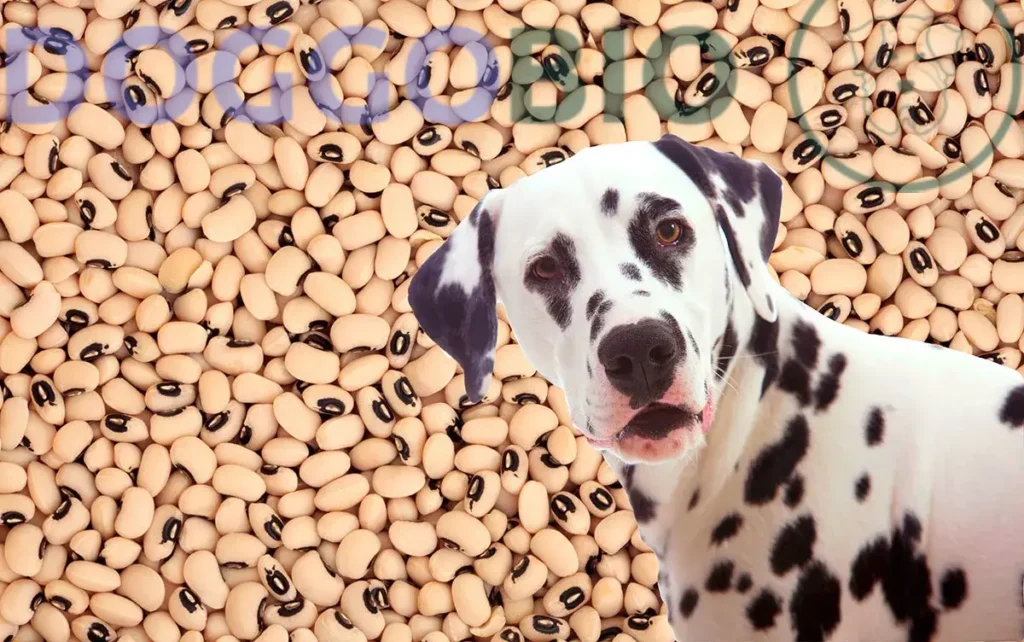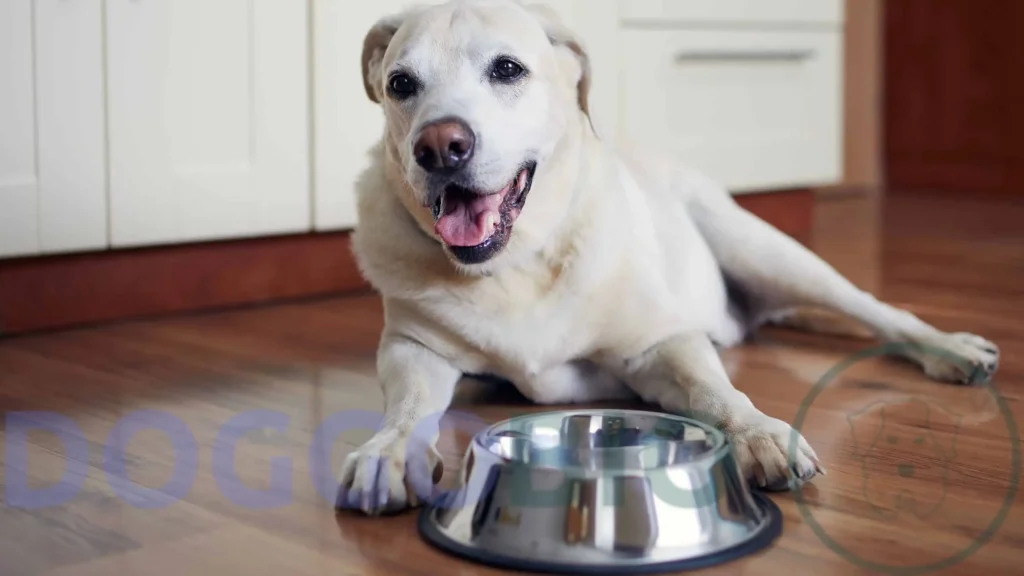As loving pet owners, we often wonder what foods are safe to share with our furry companions. Regarding human nutrition, curiosity often extends to a wide variety of items, including vegetables like black-eyed peas.
So, can dogs eat black eyed peas? The answer to this common question is a resounding yes, with some essential caveats. While black-eyed peas can be a nutritious addition to your dog’s diet when prepared and served appropriately, there are vital considerations to ensure your furry friend’s well-being.
This article will explore the benefits, potential risks, and guidelines for feeding cooked black-eyed peas to your canine companion, helping you make informed choices for their health and happiness.
Can Dogs Eat Black Eyed Peas?

Yes, dogs can eat black-eyed peas in moderation.
These legumes are packed with nutrients beneficial for dogs, including protein, fiber, vitamins, and minerals. However, they should be served as an occasional treat or supplement to a dog’s main meal rather than as a primary food source.
It’s essential to cook black-eyed peas without any added seasonings, especially those harmful to dogs, like onion or garlic.
Nutritional Value Of Cooked Black-eyed Peas
Let’s first understand the nutritional value of these legumes.
Black-eyed peas contain protein, fiber, and essential vitamins and minerals. They are also low in fat and have no cholesterol, making them a healthy addition to any diet.
One cup (172 grams) of cooked black-eyed peas contains:
- Calories: 160
- Protein: 10 grams
- Fat: 0.5 grams
- Carbohydrates: 30 grams
- Fiber: 8 grams
- Vitamin A: 4% of the recommended daily intake (RDI)
- Vitamin C: 20% of the RDI
- Iron: 20% of the RDI
- Magnesium: 10% of the RDI
- Potassium: 10% of the RDI
Black-eyed peas are also a good folate, thiamine, and phosphorus source. These nutrients are crucial in maintaining your dog’s overall health and well-being.
Benefits Of Feeding Cooked Black-eyed Peas To Dogs

1.High Nutritional Value
As mentioned earlier, cooked black-eyed peas are rich in essential nutrients that benefit dogs. The high protein content in these legumes can help support muscle growth and repair, while the fiber aids digestion and promotes a healthy gut.
Low In Fat
Obesity is a common health issue among dogs, and it can lead to various health problems such as joint pain, heart disease, and diabetes. Cooked black-eyed peas are low in fat, making them a great addition to your dog’s diet if they need to lose or maintain a healthy weight.
Good Source Of Plant-based Protein
While dogs are primarily meat-eaters, they can also benefit from plant-based protein sources. Cooked black-eyed peas provide a good amount of protein, essential for building and repairing tissues in the body.
Risks Of Feeding Cooked Black-eyed Peas To Dogs
Potential Allergic Reactions
Just like humans, dogs can also have food allergies. If your dog has never eaten cooked black-eyed peas before, it is best to introduce them slowly and monitor for any signs of an allergic reaction. Symptoms may include itching, swelling, vomiting, and diarrhea.
Gas and Bloating
Black-eyed peas contain oligosaccharides, a type of carbohydrate that can cause gas and bloating in dogs. If your dog has a sensitive stomach, it is best to avoid feeding them large amounts of cooked black-eyed peas.
Risk Of Pancreatitis
Pancreatitis is when it becomes inflamed and can be life-threatening for dogs. Foods high in fat, such as cooked black-eyed peas, can trigger this condition in some dogs.
If your dog has a history of pancreatitis, it is best to avoid feeding them cooked black-eyed peas.
How To Safely Feed Cooked Black-eyed Peas To Dogs?
If you have decided to add cooked black-eyed peas to your dog’s diet, here are some tips to ensure they are consumed safely:

Cooked And Unseasoned
Cooking black-eyed peas thoroughly before feeding them to your dog is essential. Raw or undercooked beans can be difficult for dogs to digest and may cause digestive issues. Additionally, avoid adding seasonings or spices, as they can harm dogs.
Moderation Is Key
While cooked black-eyed peas have many health benefits, feeding them to your dog in moderation is crucial. Too much of anything can be harmful; the same goes for these legumes. A small amount as an occasional treat is sufficient.
Consult With Your Veterinarian
If you are unsure whether to feed your dog cooked black-eyed peas, it is best to consult with your veterinarian. They can advise you on the appropriate portion size and frequency based on your dog’s needs.
How Much Black Eyed Peas Do You Give To Your Dog?
The amount of black-eyed peas to feed a dog depends on their size and dietary needs. Generally, treats like black-eyed peas should not make up more than 10% of a dog’s daily calorie intake. Overfeeding can lead to digestive issues like gassiness or diarrhea.
It’s best to start with small quantities and observe how your dog reacts.
When Can We Discontinue The Use Of Black-eyed Peas?
Discontinuing black-eyed peas in a dog’s diet should be considered if the dog shows signs of allergies and digestive issues or does not like them.
If a dog has a bad reaction or is prone to food sensitivities, it’s best to consult a veterinarian and consider alternative food options.
Other Alternatives To Black Eyed Peas
If you’re looking for alternatives to black-eyed peas for your dog, some other legumes and vegetables can provide similar nutritional benefits.
Green beans, kidney beans, and pinto beans are all safe for dogs when cooked and served in moderation. These can be excellent sources of protein, fiber, and essential nutrients.
However, it’s important to introduce any new food gradually and monitor your dog’s reaction to ensure it’s a suitable addition to their diet.
Some Posts You Wanna See More
- Can Dogs Eat Beets?
- Can Dogs Eat Bitter Melon?
- Can Dogs Eat Bean Sprouts?
- Can Dogs Eat Banana Peppers?
- Can Dogs Eat Artichokes?
- Can Dogs Eat Amaranth?
- Can Dogs Eat Brussels Sprouts
Frequently Asked Questions
Can Puppies Eat Cooked Black-Eyed Peas?
No, puppies have delicate digestive systems, and it is best to stick to their regular puppy food until they are six months old.
After that, you can introduce cooked black-eyed peas in small amounts and monitor for any adverse reactions.
Can Dogs Eat Canned Black-eyed Peas?
No, Canned black-eyed peas often contain added salt and preservatives, which can harm dogs. Sticking to cooked and unseasoned black-eyed peas for your furry friend is best.
Can Dogs Eat Raw Black-eyed Peas?
No, dogs should not eat raw black-eyed peas. Raw beans are difficult for dogs to digest and may cause digestive issues.
Can Dogs Eat Black eyed Peas Leaves?
Yes, Black-eyed pea leaves are safe for dogs to consume in small amounts. However, it is best to avoid feeding them large quantities as it may cause stomach upset.
Can Dogs Eat Black eyed Peas With Rice?
Yes, dogs can eat black-eyed peas with rice as long as they are cooked and unseasoned. Rice is a good source of carbohydrates for dogs, and when combined with black-eyed peas, it can make a nutritious meal.
Conclusion
In conclusion, the answer to “Can Dogs Eat Black Eyed Peas?” is yes, with some essential considerations. Cooked black-eyed peas can be a nutritious treat for your dog when served in moderation and without harmful additives.
However, it’s essential to consult your veterinarian to ensure the peas are plain and suitable for your dog’s specific dietary needs. With proper care and attention, you can safely include cooked black-eyed peas as an occasional addition to your dog’s diet for added nutrition and variety.

Nice post. I learn something totally new and challenging on websites
Pingback: Can Dogs Eat Brussels Sprouts? Discover Risks & Benefits 2024
Pingback: Can Dogs Eat Banana Peppers? Expert Tips Await! 2024